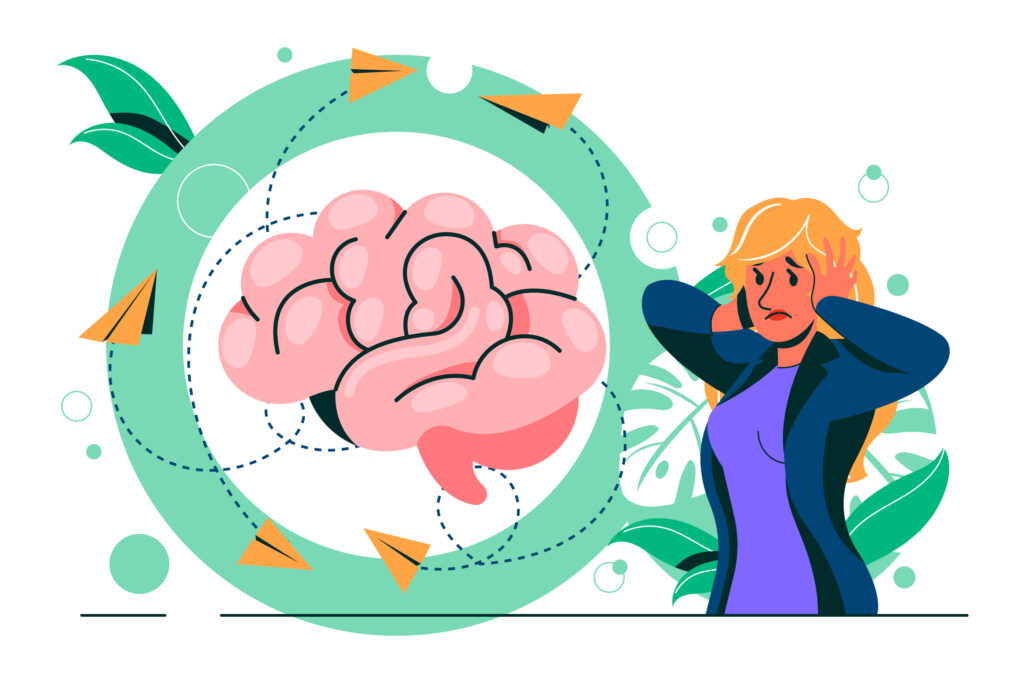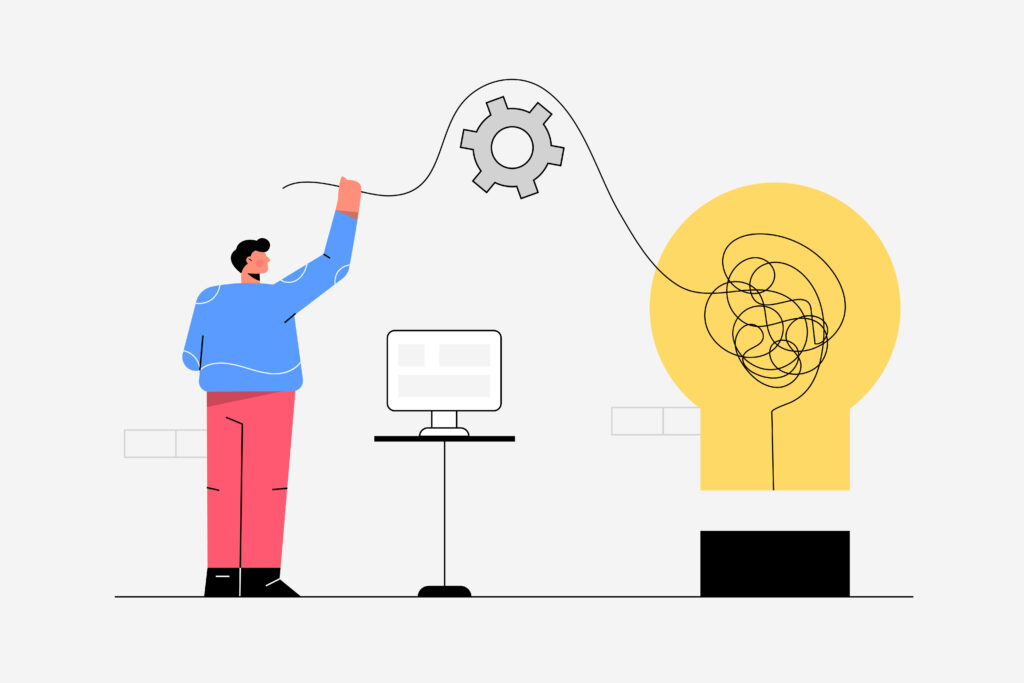“Emotional intelligence is not the opposite of intelligence, it is its sibling.” – David Caruso
Welcome to the wild and wonderful world of work, where emotions run rampant, deadlines loom, and office drama unfolds faster than a high-speed PowerPoint presentation. In this article, we’re about to embark on a journey that explores the art of building emotional intelligence (EI) in the workplace.
Daniel Goleman, Richard Boyatzis, and Annie McKee conducted a study named “The Role of Emotional Intelligence in Leadership” in 2002. This study focuses on the correlation between emotional intelligence and effective leadership.
Goleman and his colleagues discovered that traditional measures of intelligence, such as IQ, are not the sole determinants of leadership success. Instead, they found that emotional intelligence plays a pivotal role in differentiating exceptional leaders from the rest.
The study emphasizes that leaders with high emotional intelligence possess a unique set of skills that enable them to understand and manage their own emotions while also empathizing with and influencing the emotions of others. These leaders excel in self-awareness, self-regulation, motivation, empathy, and social skills.
Now, before we dive into the world of emotional intelligence, let’s get one thing straight – it’s not just about deciphering the hidden meanings behind the “emoticons” in your colleagues’ emails. Emotional intelligence is like a superpower that helps you understand and manage your own emotions and empathize with others. It’s the Jedi mind trick of the workplace, minus the lightsabers (unless your office is particularly awesome).
So, grab a cup of coffee, and join us on this journey to discover how emotional intelligence can transform your workplace experience. We’ll explore practical tips and strategies that will help you cultivate stronger connections, create a positive work environment, and navigate the ups and downs of office life with greater ease. Let’s dive in and unlock the power of emotional intelligence together.
Benefits of Emotional Intelligence in the Workplace
- Improved Communication:
Imagine a workplace where people actually understand each other without resorting to interpretive dances or smoke signals. Emotional intelligence enables you to communicate effectively by decoding the subtle nuances of body language, tone of voice, and, yes, even the infamous “emoticons.” Say goodbye to awkward misunderstandings and hello to smooth-sailing conversations.
Emotional intelligence enables individuals to communicate effectively by understanding and expressing emotions appropriately. By being aware of one’s own emotions and considering the emotional state of others, conflicts can be resolved more amicably, and misunderstandings can be minimized.
- Increased Collaboration:
A high level of emotional intelligence fosters collaboration among team members. By understanding the strengths, weaknesses, and perspectives of colleagues, individuals can leverage diverse talents and work together more harmoniously towards shared goals. Emotional intelligence turns you into a collaboration ninja, capable of seamlessly navigating team dynamics. By understanding the quirks, strengths, and coffee preferences of your colleagues, you can forge powerful alliances and achieve great things together. It’s like assembling an Avengers team, minus the capes
“The greatest ability in business is to get along with others and to influence their actions.” – John Hancock
Leaders with strong emotional intelligence inspire and motivate their teams. They possess the ability to empathize, provide constructive feedback, and understand the emotional needs of their subordinates. Such leaders create an environment that encourages growth, trust, and productivity.
A leader who knows when to crack a joke, when to lend a listening ear, and when to unleash a motivational speech that would make Tony Robbins proud. That’s the power of emotional intelligence. Leaders who possess this superpower inspire their teams, build trust, and create an environment where everyone feels valued and ready to conquer the world (or at least the quarterly sales targets).
- Better Conflict Resolution:
Conflict is an unavoidable part of any workplace, but emotional intelligence equips you with the skills to navigate those treacherous waters. By understanding the underlying emotions driving the conflict, you can defuse tense situations, turn adversaries into allies, and maybe even throw in a few jokes to lighten the mood (because who doesn’t love a good workplace sitcom moment?).
Emotional intelligence enables individuals to manage conflicts in a constructive manner. By recognizing and addressing the underlying emotions involved, conflicts can be resolved more effectively, leading to stronger relationships and improved team dynamics.
“The rules of business have changed. Now, emotional intelligence is the most important factor for success.” – Oprah Winfrey
How to Built Emotional Intelligence
- Cultivate self-awareness:
Cultivating self-awareness is like embarking on an exciting journey of self-discovery. It’s the ability to peel back the layers and gain a deep understanding of your own thoughts, emotions, and behaviors. Self-awareness is like having an internal compass that guides your actions and decisions.
To cultivate self-awareness, take time for introspection. Reflect on your values, strengths, weaknesses, and triggers. Notice how you react in different situations and the impact your actions have on yourself and others. Engage in self-reflection exercises, journaling, or meditation to develop a clearer picture of your inner landscape.
Seek feedback from trusted friends, mentors, or colleagues. Their perspectives can offer valuable insights into blind spots or patterns you may not have noticed. Practice active listening and be open to constructive criticism.
- Practice Self-regulation:
Self-regulation is a fundamental aspect of emotional intelligence, involving the ability to manage and control one’s own emotions effectively. It entails recognizing and understanding your emotional triggers, and consciously choosing how to respond in a constructive manner. By developing self-awareness and empathy, key components of emotional intelligence, you can better navigate challenging situations.
Through self-regulation, you can pause, reflect, and regulate your emotions, enabling you to make thoughtful decisions and maintain positive relationships. It involves utilizing techniques such as deep breathing, mindfulness, and setting boundaries to manage stress and impulses. By practicing self-regulation within the framework of emotional intelligence, you can enhance your emotional well-being and create a more harmonious environment.
“The quality of your relationships determines the quality of your life. Emotional intelligence is the secret sauce that makes those relationships thrive.” – Tony Robbins
- Develop Empathy:
Empathy is a vital component of emotional intelligence that involves understanding and sharing the feelings of others. By cultivating empathy, you develop a deeper awareness and sensitivity to the emotions and perspectives of those around you. Through active listening, observing non-verbal cues, and engaging in perspective-taking, you can strengthen your empathetic abilities.
Emotional intelligence enables you to connect with others on an emotional level, to demonstrate genuine care and support, and to validate their experiences. By fostering empathy, you create a more inclusive and compassionate environment, enhance your relationships, and promote collaboration and understanding.
- Improve Communication Skills:
Effective communication is a critical skill within the realm of emotional intelligence. With emotional intelligence, you can develop stronger communication skills by integrating self-awareness, empathy, and self-regulation.
By being self-aware, you can understand how your own emotions and reactions impact your communication style. Empathy allows you to listen actively, understand the emotions and perspectives of others, and adjust your message accordingly. Self-regulation helps you manage any emotional triggers that may hinder effective communication.
Emotional intelligence facilitates clear and concise expression, attentive listening, and adaptability in communication. By continuously honing your communication skills within the framework of emotional intelligence, you can foster stronger connections, resolve conflicts more effectively, and create a more positive and collaborative work environment.
“The higher your emotional intelligence, the higher your chances of reaching your full potential.” – Travis Bradberry
- Build Social Skills:
Social skills are an integral part of emotional intelligence, encompassing the ability to navigate interpersonal relationships and communicate effectively. Emotional intelligence enhances social skills by providing a foundation of self-awareness, empathy, and self-regulation.
By being self-aware, you can understand your social strengths and weaknesses and adjust your behavior accordingly. Empathy allows you to relate to others, understand their emotions, and build deeper connections. Self-regulation helps you manage your own emotions and reactions in social interactions.
With emotional intelligence, you can develop strong social skills such as active listening, effective communication, teamwork, conflict resolution, and adaptability. Building social skills within the framework of emotional intelligence enables you to create a more inclusive, supportive, and collaborative social environment.
- Continuous Learning and Growth:
Learning and growth are intertwined with emotional intelligence as it encourages self-improvement and personal development. With emotional intelligence, you foster a growth mindset that embraces challenges and sees setbacks as opportunities for learning.
Emotional intelligence enhances self-awareness, allowing you to identify areas for growth and set meaningful learning goals. Through empathy, you gain a deeper understanding of others and their experiences, fostering a desire to expand your knowledge and perspectives.
Emotional intelligence facilitates self-reflection, encouraging you to assess your progress and make adjustments along the way. By incorporating emotional intelligence into continuous learning, you remain adaptable, open-minded, and motivated to embrace new experiences and expand your skills and knowledge. Emotional intelligence enables a lifelong love of learning, driving personal and professional growth.
“Emotional intelligence is not just about being smart with emotions; it’s about using emotions to be smart.” – Unknown
Here are a few highly regarded books that delve into the subject of emotional intelligence and its application in the workplace:
“Emotional Intelligence: Why It Can Matter More Than IQ” by Daniel Goleman
Considered a seminal work in the field, this book by Daniel Goleman explores the concept of emotional intelligence and its impact on personal and professional success. Goleman delves into the five components of emotional intelligence and provides practical insights on how to cultivate these skills for better relationships, effective leadership, and overall well-being.
Read Book now: E-book | Paperback | Audio Book
“Primal Leadership: Unleashing the Power of Emotional Intelligence” by Daniel Goleman, Richard Boyatzis, and Annie McKee
In this book, Goleman, Boyatzis, and McKee delve into the crucial role of emotional intelligence in effective leadership. They discuss the importance of self-awareness, self-regulation, empathy, and relationship management for inspiring and motivating teams. The authors provide strategies for enhancing emotional intelligence and fostering resonant leadership that positively influences organizational culture and performance.
Read Book now: E-book | Paperback | Audio Book
“Emotional Intelligence at Work: The Untapped Edge for Success” by Hendrie Weisinger and J.P. Pawliw-Fry
This book focuses on the practical application of emotional intelligence in the workplace. Weisinger and Pawliw-Fry explore how emotional intelligence impacts various aspects of work life, such as teamwork, decision-making, stress management, and customer service. They provide actionable strategies, case studies, and self-assessment tools to help individuals develop and apply emotional intelligence skills for professional success.
Read Book now: E-book | Paperback | Audio Book
“The EQ Edge: Emotional Intelligence and Your Success” by Steven J. Stein and Howard E. Book
“The EQ Edge” offers practical guidance for developing emotional intelligence and leveraging it for personal and professional growth. Stein and Book explore the impact of emotional intelligence on various facets of life, including leadership, communication, teamwork, and conflict resolution. The book includes self-assessment exercises and strategies for improving emotional intelligence skills.
Read Book now: E-book | Paperback | Audio Book
“Working with Emotional Intelligence” by Daniel Goleman
Building upon his previous work, Goleman’s “Working with Emotional Intelligence” explores the role of emotional intelligence in the workplace. The book provides insights on developing emotional intelligence, fostering teamwork, managing change, and creating a positive work environment. Goleman offers real-life examples and practical advice to help individuals enhance their emotional intelligence skills and thrive in their professional lives.
Read Book now: E-book | Paperback | Audio Book
These books provide valuable insights, research-based knowledge, and practical strategies for developing emotional intelligence and applying it effectively in the workplace. Whether you are a leader, team member, or aspiring professional, these resources can help you navigate workplace relationships, improve communication, and enhance overall effectiveness.




